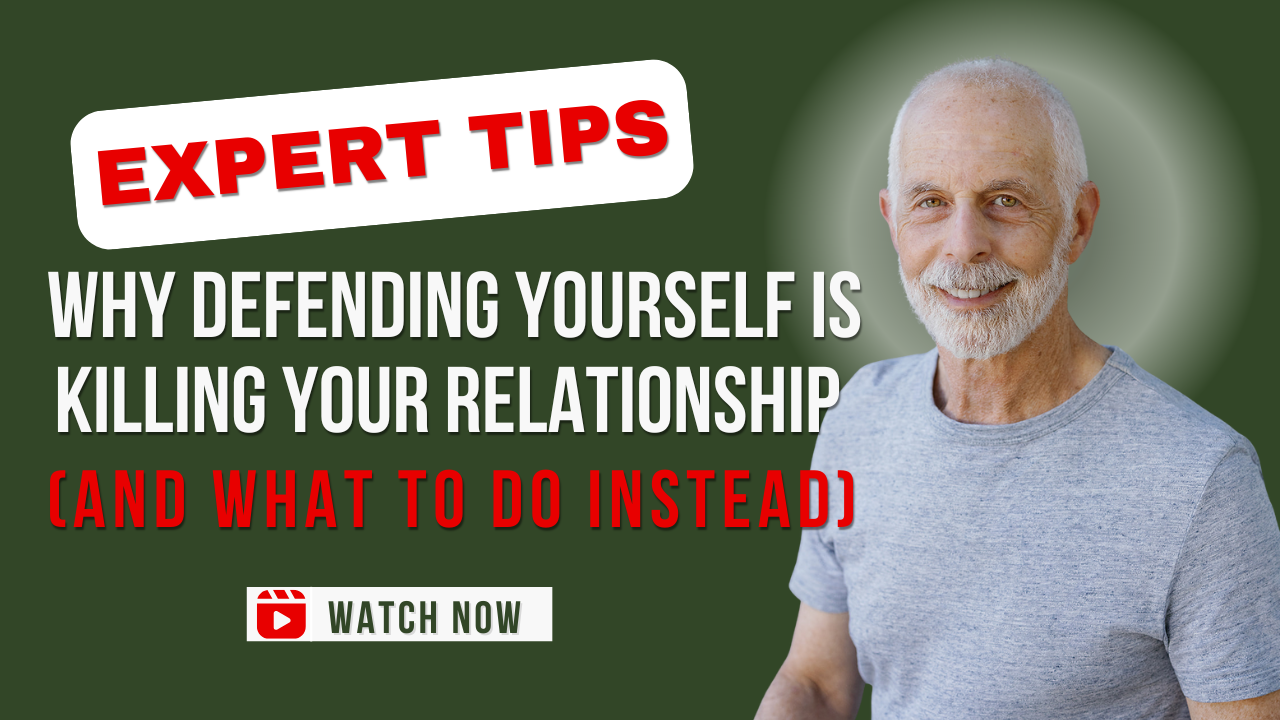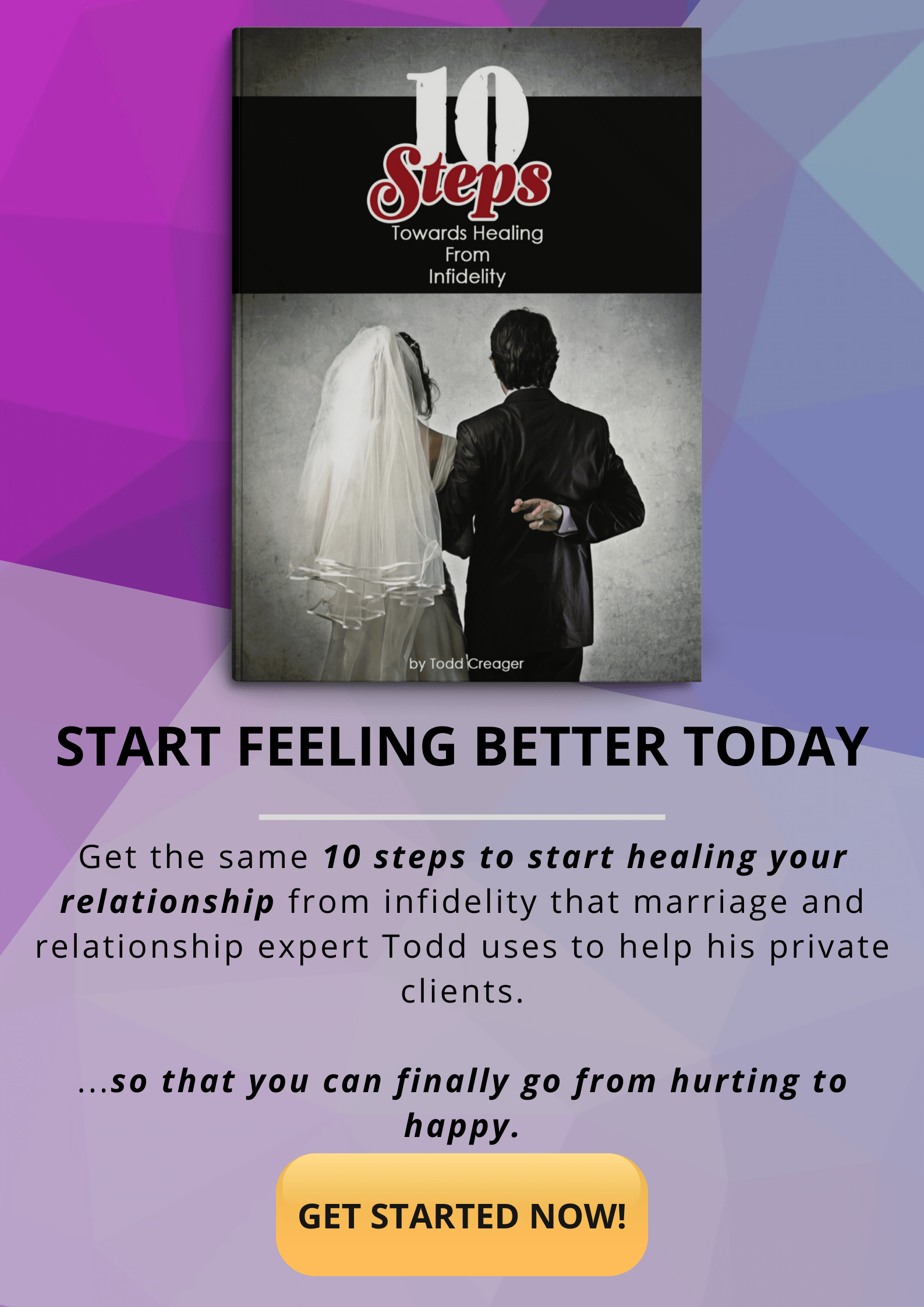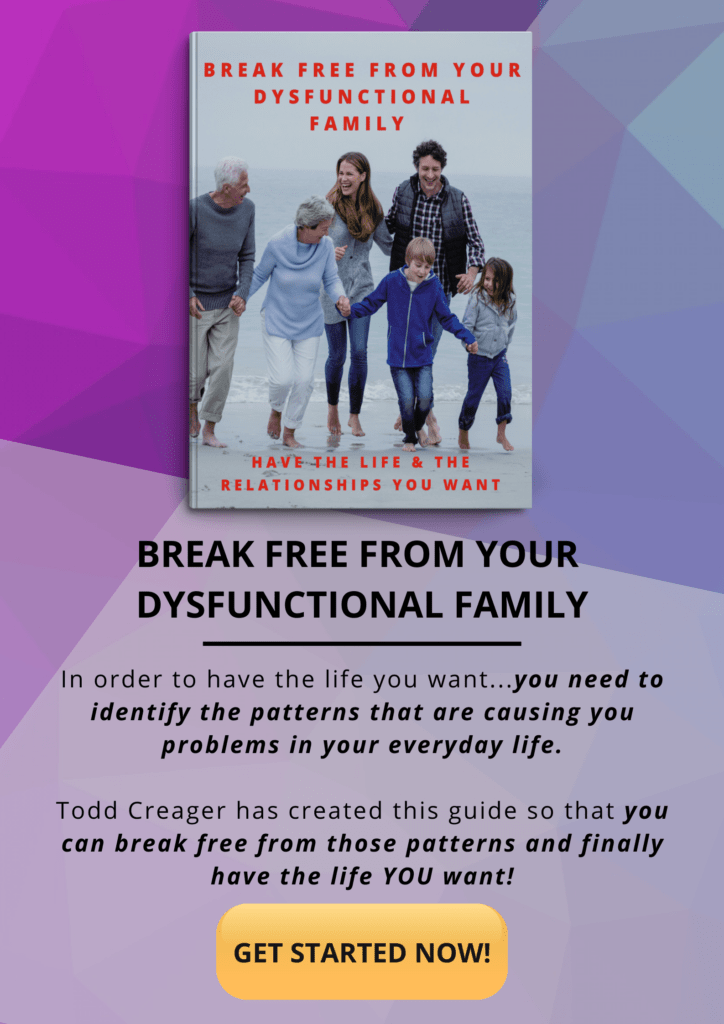If you’ve ever walked away from an argument with your partner feeling exhausted and unheard—even though you were just trying to explain your side—you’re not alone.
I’ve worked with hundreds of couples over the years, and I can tell you this: defensiveness is one of the biggest connection killers I see in my practice. But here’s what catches most people off guard: when you’re defending yourself, you’re not being difficult. You’re actually showing how much you care about being understood.
TL;DR: Defensiveness isn’t resistance—it’s protection.
When you explain yourself during conflict, you think you’re clarifying, but your partner hears rejection. The solution isn’t more talking. It’s presence. Three non-verbal reconnection techniques can stop the defend-disconnect cycle and create the safety needed for real communication.
What Most People Miss:
→ Your defense feels like rejection to your partner, no matter how valid your point is
→ The more you explain, the more distant your partner gets (not closer)
→ Creating safety happens through presence, not through being understood first
→ Both partners are usually trying to help the situation—they’re just making it worse
I’m going to walk you through why this happens, what’s really going on beneath the surface, and give you a specific example from my practice that changed how one couple communicates entirely.
The Hidden Truth About Defensiveness
When you defend yourself in a relationship conflict, you’re making being understood your goal. And that sounds reasonable, right? You want your partner to see things accurately, to know your intentions, to understand that what they’re saying isn’t quite fair or isn’t quite right.
The problem is this: while you’re defending, you’re not connecting.
I see this play out the same way with couple after couple in my office. One partner expresses something—maybe it’s a complaint, maybe it’s hurt, maybe it’s frustration. The other partner immediately feels misunderstood and jumps in to explain. “No, that’s not what happened” or “You’re not seeing it from my perspective” or “If you just understood that I was trying to…”
And in that moment, connection dies.
Your partner doesn’t hear your explanation as clarification. They hear it as dismissal of their experience. They feel diminished. Their reality is being challenged when all they wanted was to be heard. So what do they do? They double down. They get more intense. They repeat themselves with more emotion because now they feel rejected on top of whatever they were already upset about.
And then what do you do? You defend more because clearly they’re still not getting it. You’re trying to be helpful. You’re trying to make things better. If they could just see it your way, they wouldn’t be so upset with you.
See the cycle?
In my experience working with couples for over three decades, I’ve found that defensiveness isn’t an attack—it’s protection. And when both partners understand that, something starts to shift. But even though we can understand it intellectually, protection still creates disconnection, not connection.
What Really Happened with Rob and Jody
Let me tell you about Rob and Jody. I’ve been helping them move from constant miscommunication into deep understanding—not just spoken understanding, but the kind of unspoken understanding where you feel safe with each other.
They came to me doing exactly what I just described. Jody would bring something up. Rob would feel it was unfair or inaccurate, so he’d immediately explain himself.
He felt misunderstood, and he thought if he could just clarify, she’d see that she was perceiving things wrong.
But Jody didn’t stop and say, “Oh, okay, I see your point.” Why? Because she had a point too. She was trying to get her point heard. So now you’ve got two people bickering. I call it like each person has their own tennis balls and they’re both throwing balls in the air, but nobody’s really catching anything.
What couples really need to learn is how to play catch—where one person throws and the other person catches. In other words, one person is present for the other person.
Rob and Jody weren’t trying to fight. They were really trying to clarify. But Jody didn’t hear clarification. She heard rejection. So she’d get more intense, maybe angrier, because she didn’t feel heard. And Rob would get even more frustrated that she couldn’t see how unfair her perception was.
No one felt heard.
Here’s the moment that changed everything for them: Rob told me, “Every time I defend myself, I thought I was helping. But she told me she felt like I didn’t care about her experience at all.” That surprised him because he surely did care. But it comes off the opposite way when you’re defending.
That hit him hard.
He was trying to make things better. People who defend are often trying to make things better—they never do, but they’re trying. Rob thought if Jody could just see it his way, she wouldn’t be so upset with him.
The Pause That Changed Their Marriage
So we tried something new. The next time conflict came up (and we worked on this with both of them, not just Rob), Jody brought something up that definitely triggered him. Rob felt that urge to explain himself.
But this time, he took a pause. He took a breath. Actually, several breaths. And then he reached his hand out to her.
Notice: no talking. No defense. Just presence.
Jody looked a little shocked. And then something happened that doesn’t happen when people are defending themselves—she softened. She actually opened up more than she had ever told him before about that particular subject.
That moment changed everything.
We think the way to fix disconnection is to talk more. But when you drop the need to be right or to be understood or to defend yourself, you create space for something deeper. Safety. Softness. Repair.
When you slow down and reach out in some nonverbal way, when you’ve dropped your urge or your impulse to defend, something happens to the other person. It registers with them.
Because really, your partner doesn’t need your defense. Your partner needs your presence.
Jody learned to do this for Rob too. Every time she felt the urge to defend herself, she’d take a breath or two or whatever she needed, and then she’d reach out and touch him in some way—touch his leg, hold his hand. They practiced this in sessions. They did it between sessions.
And Rob, who typically wasn’t someone who shared a lot emotionally, started sharing more. Why? Because they were creating a place of safety.
Why This Works (The Science Behind Presence)
When you defend yourself during conflict, you’re activating your partner’s threat response. Their nervous system is registering: “My experience doesn’t matter here. I’m not safe to be vulnerable.”
Based on my work with couples dealing with infidelity, trauma, and complex relational patterns, I’ve seen how the body holds these responses. When one partner goes into explanation mode, the other partner’s body tenses. Their breathing becomes shallow. They’re preparing for battle, not connection.
But when you pause and reach out physically, you’re sending a completely different signal. You’re saying with your body: “I’m here. You matter. I’m not going anywhere.” That drops the other person’s defenses because they’re not being rejected anymore.
What research on attachment and nervous system regulation tells us: Physical touch and presence activate the parasympathetic nervous system—the part that helps us calm down and feel safe. Words activate the thinking brain, which during conflict is already spinning and trying to prove a point.
This isn’t about who’s right or wrong. It’s about creating the conditions where you can actually hear each other.
Three Ways to Break the Defensiveness Cycle
1. The Pause and Breathe
When you feel that urge to explain yourself, that’s your cue. That urgency you feel? That’s your signal to stop, not to speak. Take at least three slow breaths. I tell couples to breathe in for four counts, hold for four, breathe out for six. That’s enough to start regulating your nervous system.
During those breaths, you’re not planning what to say. You’re not building your case. You’re just breathing.
Common pitfall I see: People take one quick breath and then jump back into explanation mode. That doesn’t work. Your body needs time to shift out of protection mode.
2. Reach Out Nonverbally
After you’ve taken those breaths, reach out to your partner in some physical way. This might be:
→ Reaching for their hand
→ Placing your hand on their leg
→ Moving closer to them
→ Making soft eye contact
The key is that you’re making a bid for connection, not defense. You’re saying, “I want to be close to you” without saying anything at all.
What happens next: Your partner might be shocked at first, like Jody was. They’re expecting defense, so presence catches them off guard. Give them a moment to register what’s happening.
3. Stay Present While They Share
This is the hardest part. Once your partner softens and starts sharing more (which they usually will), you might hear things that trigger your defensiveness again. You might hear perceptions that feel inaccurate or unfair.
Stay present anyway. Keep breathing. Keep your hand on theirs. You can address misunderstandings later, but right now, you’re creating safety. And safety is what allows real communication to happen.
Reality check from 30+ years of practice: This doesn’t mean you never get to share your perspective. It means you prioritize connection first. When your partner feels heard and safe, they become capable of hearing you too. When they’re in defense mode because you’ve been defending, they can’t hear anything except rejection.
When Defensiveness Makes Sense (And Still Doesn’t Help)
I want to acknowledge something important: sometimes what your partner is saying genuinely isn’t accurate. Sometimes their perception is skewed by their own past trauma or their own pain. Sometimes they’re making assumptions that aren’t fair.
And in those moments, of course you want to clarify. Of course you want to be understood. Your desire to defend is completely understandable.
But here’s what I’ve learned in working with couples dealing with infidelity recovery, trauma, and deep relational pain: being understood in that moment is less important than creating safety. Once safety exists, understanding can happen. But if you sacrifice safety to be understood, you get neither.
I work with partners in pain all the time—people dealing with betrayal, people recovering from infidelity, people with complex trauma histories. In those situations, emotions are heightened and perceptions can be distorted by pain. The betrayed partner might perceive things through a lens of hurt that makes everything feel like rejection.
And the person who betrayed might feel constantly misunderstood, like nothing they do is seen accurately.
In both cases, defensiveness feels justified. But it still doesn’t work.
What to Do When Your Partner Gets Defensive
Everything I’ve said applies to you too when your partner is the one defending. If you bring something up and your partner immediately starts explaining themselves, you probably feel dismissed. You might get more intense, more emotional, more insistent that they hear you.
Instead, try this: “I can see you want me to understand your perspective. I do want to hear that. But right now, I need you to hear me first. Can you just listen for a moment?”
If they keep defending, you can say: “When you explain yourself right now, I feel like my experience doesn’t matter. I’m not saying you’re wrong. I just need you to hear me first.”
And if they still can’t stop defending, that might be a sign that professional help would be useful. Some couples need a therapist to help them break these patterns because they’re too entrenched to change on their own.
What Safety Actually Looks Like
When couples tell me they want to feel “safe” in their relationship, they often mean they want to be able to share vulnerable things without being shut down. They want to be able to bring up difficult topics without starting World War III.
Safety isn’t the absence of conflict. Safety is the presence of connection even during conflict.
In safe relationships:
→ You can say something your partner doesn’t like without them attacking or defending
→ You can be upset without your partner trying to fix it or explain it away
→ You can have different perceptions without one person being “right” and one being “wrong”
→ You can pause when things get heated and come back without resentment
When Rob stopped defending and reached out to Jody, he created safety. Not because he agreed with her perception, but because he prioritized connection over being understood.
That’s what safety looks like.
The Long-Term Shift
Rob and Jody didn’t become perfect at this overnight. They still slip into defensiveness sometimes. But now they catch themselves faster. Now they have a tool that actually works.
What I’ve noticed in my practice is that couples who learn to prioritize presence over defense end up communicating better overall. Why? Because they’re building emotional muscles—the ability to stay present for each other even when it’s uncomfortable.
That’s what creates the deeper, more authentic connection that couples come to therapy seeking.
Based on my work with hundreds of couples: The ones who make it through infidelity, trauma, and major life crises are the ones who learn to be curious about each other instead of defensive. They develop the capacity to sit with pain—their own and their partner’s—without trying to escape it or explain it away.
That’s not easy. It requires practice. But it’s possible.
When to Get Professional Help
Some situations are too complex to handle on your own:
→ If there’s been infidelity and the defensiveness is tied to lies or ongoing betrayal
→ If one or both partners have trauma histories that make vulnerability terrifying
→ If defensiveness has escalated into contempt, criticism, or emotional withdrawal
→ If you’ve tried these techniques and can’t seem to make them stick
Working with a therapist who understands couples dynamics, infidelity recovery, and trauma can help you navigate these deeper waters. Sometimes you need someone to help you see your blind spots and hold space for both of you.
Your Next Step
The next time you feel the need to defend yourself in a conversation with your partner, try this:
Pause. Soften your body. Reach out in some nonverbal way.
In that moment, when you shift from trying to be understood to trying to connect, the entire dynamic can change.
Your partner doesn’t need your defense. Your partner needs your presence.
And when you give them that, you create the space where real understanding becomes possible.
About This Approach
The reconnection techniques described here are based on attachment theory, nervous system regulation, and trauma-informed couples therapy.
They’re particularly effective for:
→ Couples stuck in pursue-withdraw patterns
→ Partners recovering from infidelity
→ Individuals with trauma histories affecting their relationships
→ Anyone struggling with emotional reactivity during conflict
These methods work because they address the nervous system first, before trying to address the content of the disagreement.
When both partners feel safe, they become capable of hearing each other and working through differences constructively.
Methodology note: The case example of Rob and Jody represents a composite of multiple couples I’ve worked with over three decades of practice.
Names and identifying details have been changed to protect client confidentiality while illustrating the patterns I consistently observe in my clinical work.






Reader Interactions